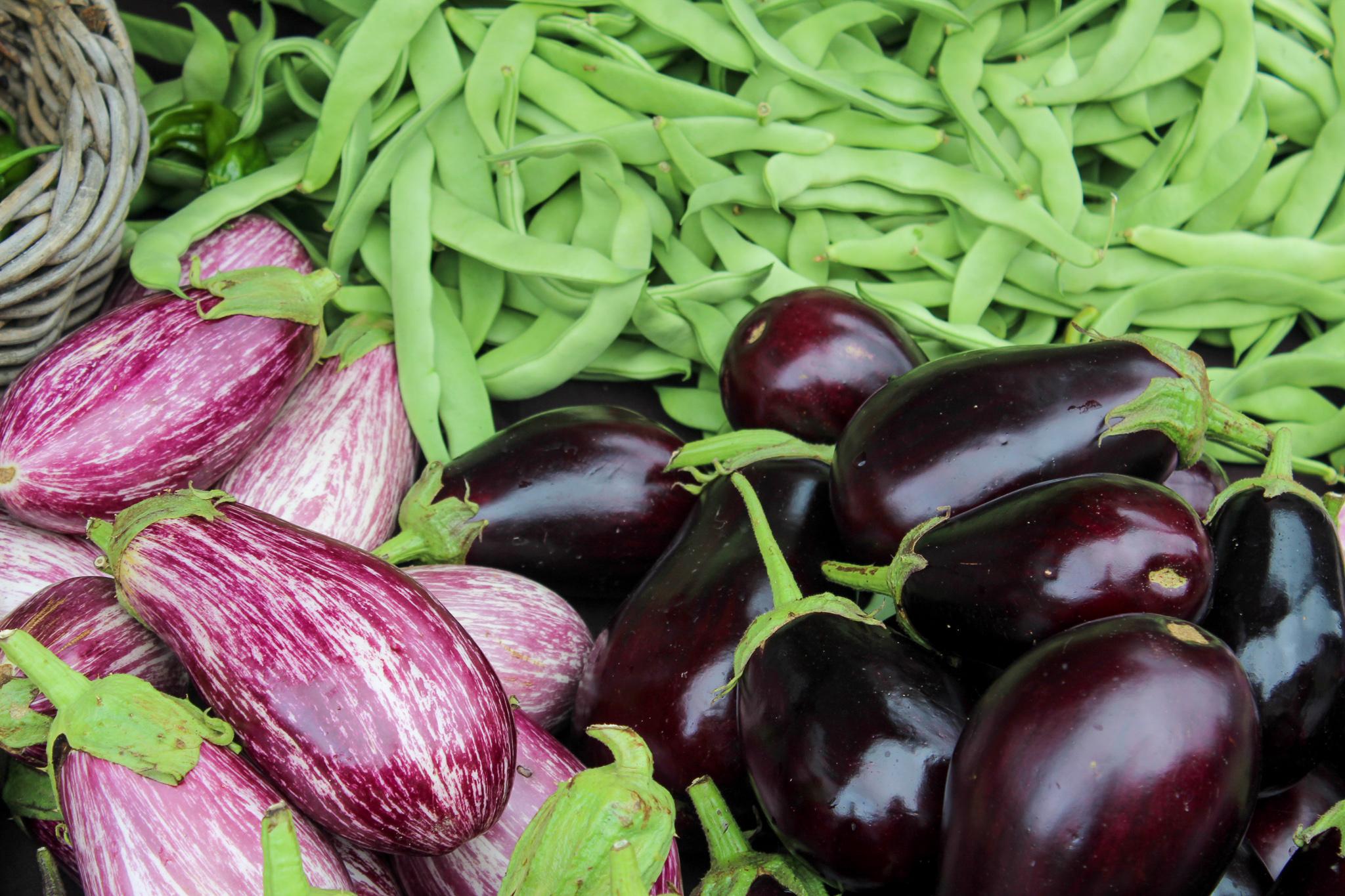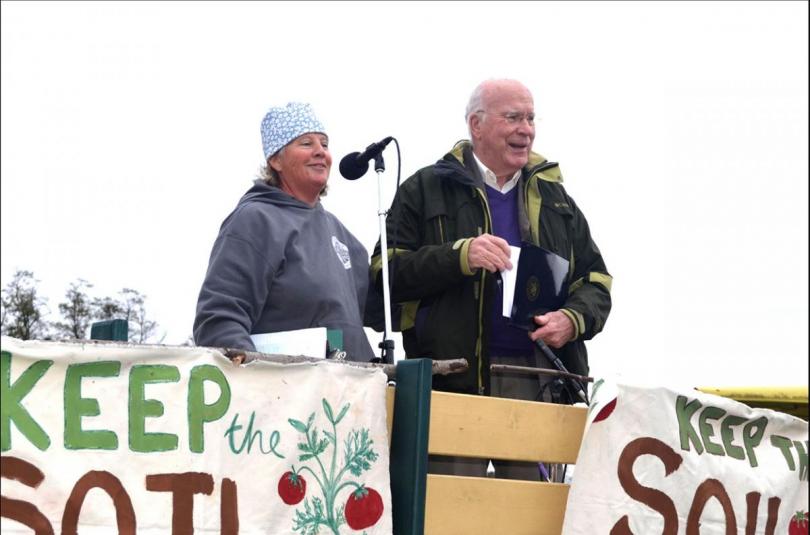

In 2020, we marked the 30th anniversary of the enactment of the Organic Foods Production Act (OFPA). That law, established within the 1990 Farm Bill when I was Chairman of the United States Senate Agriculture Committee, unleashed what has become a multi-billion dollar industry. Based on strong roots and vibrant advocacy in Vermont, it is the cornerstone of the organic movement. It is also one of the legislative achievements of which I am most proud.
It is no coincidence that the Northeast Organic Farming Association of Vermont (NOFA-VT) now celebrates its own significant milestone: 50 years serving Vermont’s food and farming community, predating the passage of OFPA by nearly two decades. The establishment of a voluntary USDA label with clear standards and full transparency was very much a ‘born in Vermont’ idea, and NOFA-VT’s leadership and tireless advocacy were indispensable in working with me to scale it into a national framework. Vermont’s organic farmers, pioneers in the field and the marketplace, saw the potential for this approach to level the playing field, give consumers a trusted label, and create opportunities for future generations to steward our working landscape.
 There was one problem: In 1989, most members of the Senate Agriculture Committee had no idea what organic farming was or what it looked like. So, instead of bringing farmers to the Senate, we brought senators to the farm. No one could make a better case than the Vermonters who were putting in the work on their farms every day. I will never forget that U.S. Senate Agriculture Committee field hearing in the Montpelier State House. Enid Wonnacott, then NOFA-VT’s director and one of my most trusted resources on organics, testified so passionately to members of the Committee, presenting NOFA’s shared vision of what an organic market and label could do for farmers and consumers. She called for organic transition cost share and organic research and extension programs, outlining programs that still exist to help our organic farmers to this day.
There was one problem: In 1989, most members of the Senate Agriculture Committee had no idea what organic farming was or what it looked like. So, instead of bringing farmers to the Senate, we brought senators to the farm. No one could make a better case than the Vermonters who were putting in the work on their farms every day. I will never forget that U.S. Senate Agriculture Committee field hearing in the Montpelier State House. Enid Wonnacott, then NOFA-VT’s director and one of my most trusted resources on organics, testified so passionately to members of the Committee, presenting NOFA’s shared vision of what an organic market and label could do for farmers and consumers. She called for organic transition cost share and organic research and extension programs, outlining programs that still exist to help our organic farmers to this day.
When we returned to Washington, after Enid’s testimony, after hearing from a number of forward-thinking Vermont farmers, and after actually seeing things—directly on the farm—a majority of the Committee’s members, both Republicans and Democrats, became cosponsors of the “Organic Farm Bill.” And that first-hand testimony of Vermonters made it a better bill.
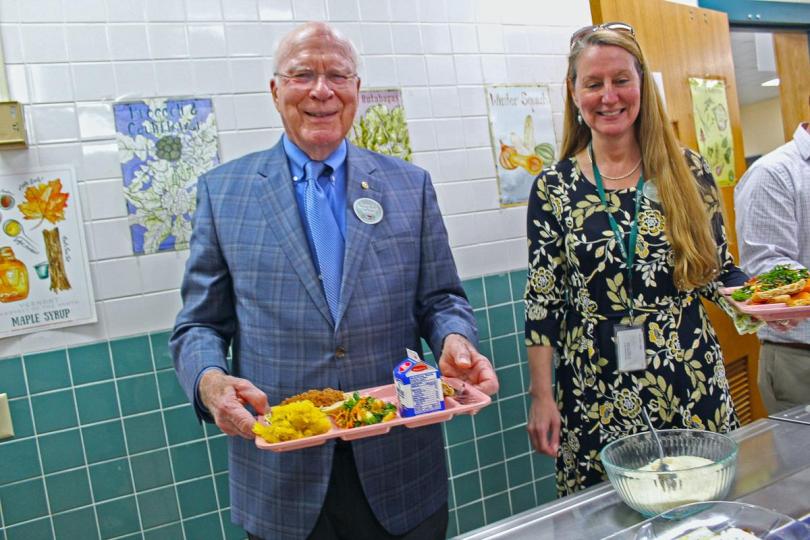
Not everyone was pleased with our success. First, industrial poultry producers tried to sneak in some Midnight language that would have gutted OFPA. This early challenge to the new organic standards was a crucial test. We passed that test, and in the process sent shock waves across the Nation’s Capital. Backed by Vermont’s advocacy, I led the effort to beat back that challenge, and Capitol Hill learned that the organic community had arrived as a voice to be reckoned with.
Another challenge came when the U.S. Department of Agriculture (USDA) issued their first draft rule, years in the making. To say that they ‘missed the mark’ would be understating it. So again, we marshaled the necessary pushback. Farmers and consumers flooded USDA with nearly 300,000 comments, at the time a record for any Federal rulemaking. I led 30 senators in sending a strong, bipartisan letter objecting to the rule. USDA listened, went back to work for two more years, and finally issued a much better rule.
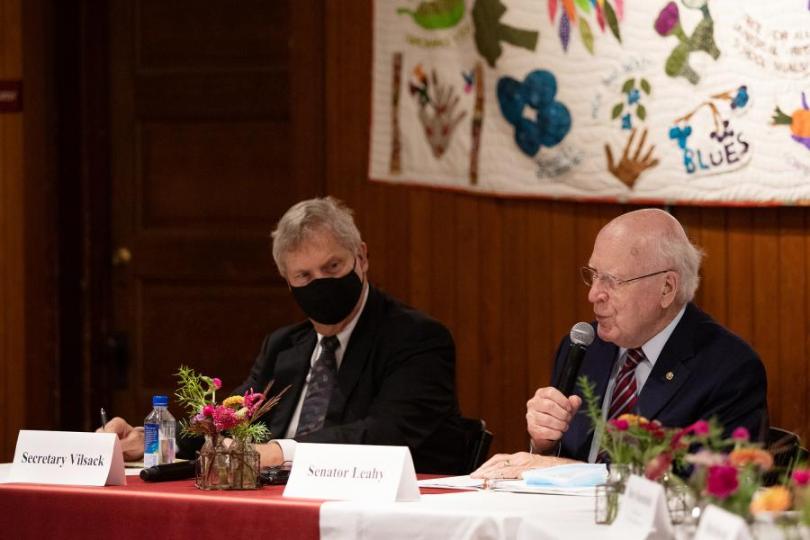

It is an important time to remember the early victories, those first headwinds that we overcame, and to remember why we worked so hard for the organic label in the first place. Those victories are a reminder that this community has achieved great things and overcome big challenges in the same way: together. Our own success in enabling a more than $60 billion organic consumer market has, unfortunately but predictably, attracted those who prefer to erode the standards rather than meet them, and to bend the rules to fit their industrial-scale vision for agriculture and pursuit of short-term profits. For years, we have fought against organic import fraud and hydroponics, loopholes in the origin of livestock and animal welfare standards, and for adequate enforcement of the pasture rule.
In recent weeks, in Vermont and neighboring states, we have seen that those fights are not just intellectual or hypothetical. Our access to important organic markets is eroding before our eyes. The stakes in this struggle are very real for our farm families, our rural communities, our state, and I believe, for the nation.
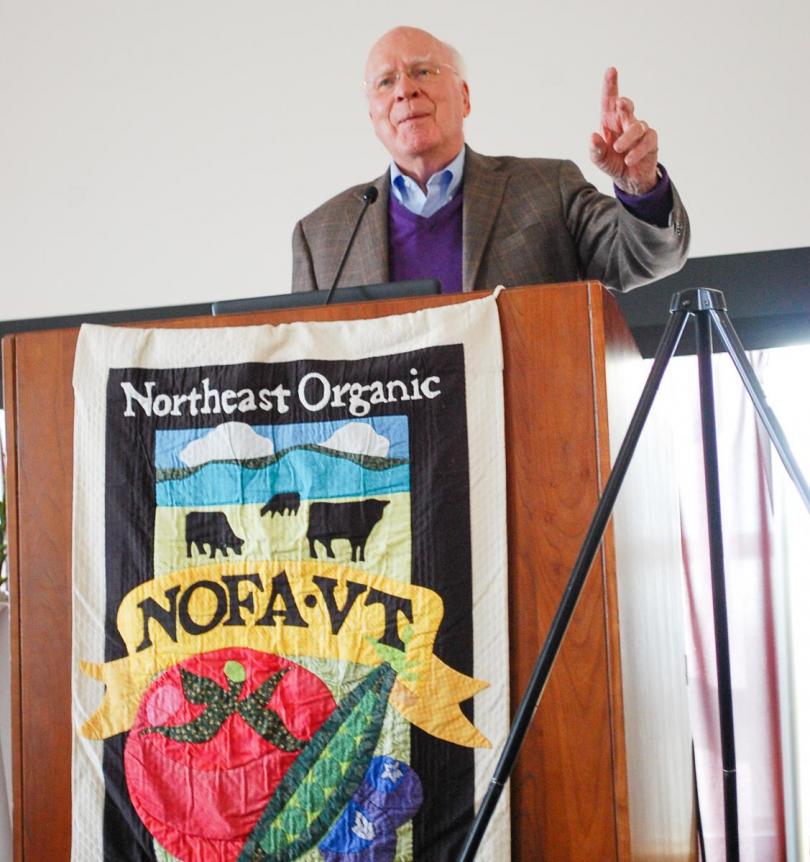

For 50 years, NOFA-VT has not just provided the voice for those farm families and the communities they support. You have brought a broader vision for organic agriculture, one that connects the healthy soils to healthy kids, food equity to racial equity, and vibrant ecology with a viable rural economy. I will continue to look to NOFA-VT as my strongest ally as we tackle challenges both immediate and global. This holistic vision is more important now than ever before.

